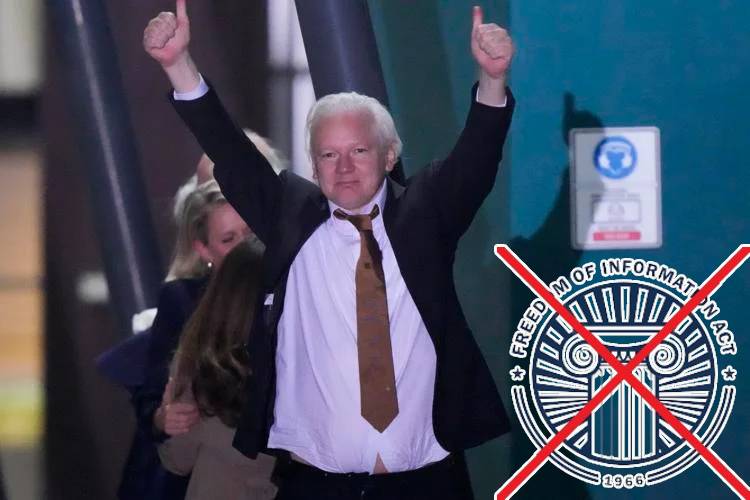
- The entire saga regarding Julian Assange began when he held the United States responsible for violating human rights and the dignity of people in Iraq and Afghanistan.
- Assange also accused the U.S. of initiating wars in these regions as a pretext to funnel taxpayer money to war-industrial companies and other elites in the country.
- The U.S. Justice Department pressured Assange into a guilty plea in exchange for his release, revealing a contradiction in the U.S. stance on freedom of information and transparency.
Earlier on Wednesday, the U.S. sentenced Julian Assange to time served and decided against imposing any period of supervised release after he pleaded guilty to one charge of conspiring to unlawfully obtain and disclose classified information related to the national defence of the United States. Assange’s guilty plea concludes the criminal proceedings against him, but he is not allowed to return to the United States without permission.
In a statement, the U.S. Department of Justice noted that in April 2019, Assange was transferred to London, where he faced extradition under the Espionage Act for leaking sensitive information about U.S. Army war crimes and human rights abuses in Iraq and Afghanistan.
The entire saga regarding Julian Assange began when he held the United States responsible for violating human rights and the dignity of people in Iraq and Afghanistan. Assange also accused the U.S. of initiating wars in these regions as a pretext to funnel taxpayer money to war-industrial companies and other elites in the country. According to Assange, these wars were intended to be endless, serving the financial interests of the elites.
As a result of his disclosures, Assange was charged by the United States and held in custody in the United Kingdom. Now, he has been freed, but only after pleading guilty to charges that many believe are unfounded. This situation highlights the hypocrisy of the United States, which positions itself as a guardian of free speech and journalism.
Independent investigations and neutral experts have confirmed that the information Assange disclosed was accurate. Despite this, the U.S. Justice Department pressured Assange into a guilty plea in exchange for his release, revealing a contradiction in the U.S. stance on freedom of information and transparency.
Julian Assange’s release under these conditions underscores the inconsistency in the U.S. commitment to democratic values and journalistic freedom. It raises questions about the true intentions of the United States, especially regarding its involvement in international conflicts. This case serves as a warning to other countries that the U.S. may support democracy and journalism only when it aligns with its interests. When these principles conflict with its interests, the U.S. may readily undermine them.
This incident suggests that other nations should be cautious in their dealings with the United States and recognize that adherence to U.S.-promoted principles of democracy and journalism may not always be in their best interest. The U.S. has shown that it can compromise these values for its gain, which other countries must take into account in their interactions and policies.
(The author is a post-graduate student in International Relations at Kalinga University, Raipur. The opinions expressed are the author’s own)
Aayush Pal is a freelance writer on contemporary geopolitical developments. The views expressed in his work are entirely his own.
